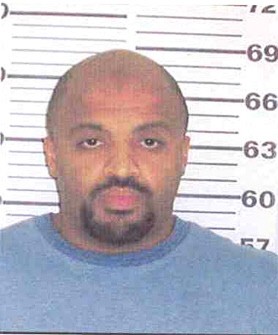
WASHINGTON, Jan 4, 2010 (AFP) - A US appeals court upheld Monday the conviction and life sentence of Zacarias Moussaoui for complicity in the September 11, 2001 attacks on the United States.
The US Court of Appeals for the 4th Circuit rejected claims by US lawyers for Moussaoui -- the only person charged in the United States in the attacks that claimed nearly 3,000 lives -- that his guilty plea and sentences on six criminal conspiracy counts were invalid.
It also struck down their efforts to refer the case back to a federal court in Alexandria, Virginia, where he pleaded guilty in 2005 of conspiracy in the suicide hijackings of passenger planes that crashed into New York's World Trade Center, the Pentagon and a field in Pennsylvania.
"We affirm Moussaoui's convictions and sentences in their entirety and deny his motion to remand," the three-judge panel said in its ruling.
The court decision took place amid intense debate over whether terror suspects should be tried in civilian US courts or in specially designed military tribunals known as military commissions.
Republicans and some of President Barack Obama's fellow Democrats have blasted his administration's decision to try a Nigerian accused of trying to bring down a US-bound jetliner on Christmas Day.
Lawmakers also have pushed back against the White House's plans to transfer five accused 9/11 plotters -- including self-proclaimed mastermind Khalid Sheikh Mohammed -- from the US military prison in Guantanamo Bay, Cuba to New York for trial in US federal court.
Moussaoui's attorneys had asked that their client's sentence and conviction be remanded because his constitutional rights were violated and the government had failed to provide classified evidence that could have been used for his defense.
But Justice Department lawyers argued that the judge presiding over the trial ensured that Moussaoui, a French national of Moroccan descent, understood his rights.
"Moussaoui claims that the district court failed to inform him of the nature of the charges and ensure that he understood them," the appeals court said in its 78-page opinion. "We disagree."
After dodging the death penalty during a months-long trial in the Alexandria court, Moussaoui was sentenced to life in prison. The court of appeals upheld that sentence.
"We find it significant that Moussaoui never sought to rescind the admissions he had just made, nor to withdraw his guilty plea during the nearly year-long period that elapsed between his plea and the conclusion of the sentencing proceeding," the appeals court judges wrote.
Moussaoui, who later recanted his testimony only to claim he was part of another Al-Qaeda plot, is serving a life sentence in solitary confinement at a supermaximum security prison in Colorado.
During the trial, Moussaoui testified that he was supposed to hijack a fifth plane and crash it into the White House. Four planes were involved in the 9/11 attacks. Defiant, he shouted "God curse America" to the courtroom and swore the United States would never catch Al-Qaeda leader Osama bin Laden.
He can still ask the full appeals court to review his request and then make a final appeal before the US Supreme Court.
Arrested several weeks before the Al-Qaeda attacks in New York and Washington, Moussaoui was sentenced to life in prison without the possibility of release in May 2006.
But the Central Intelligence Agency (CIA) handed Moussaoui a possible unintended lifeline in November 2007 by admitting that it provided false information to the court when the defense team requested interrogation tapes of two terror suspects.
The CIA had said in May 2005 that it did not have any recordings, adding it has since found an audio tape and two videos.
In court papers filed in November 2007, the prosecution argued that Moussaoui's name was not mentioned in any of the three recordings and that therefore the CIA's mistake was not detrimental to the defendant.
The recordings still exist -- unlike interrogation videos of two Al-Qaeda suspects that the CIA has admitted destroying in 2005, a revelation that triggered charges the agency was trying to cover up possible torture.
























